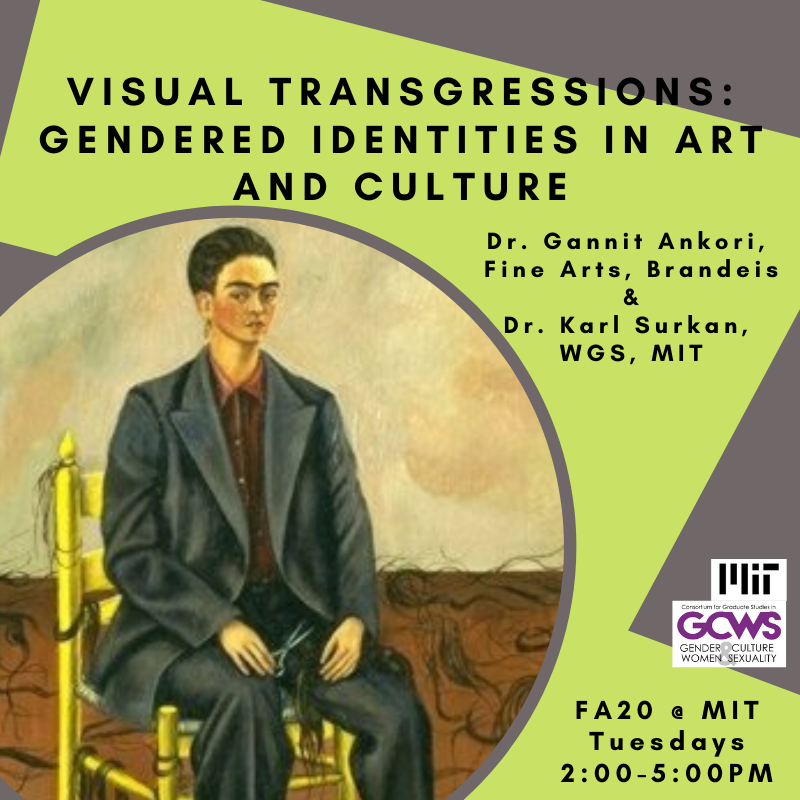This course will be held on-line for the Fall 2020 semester. There will be no in person classes. Please contact the office if you have questions at gcws@mit.edu.
Tuesdays 2:00-5:00 PM
Fall 2020.
In this course we will examine, analyze, contextualize, and interpret explicit and coded representations of gender, race, class, and sexual identity as manifested in art, film, exhibitions and visual culture. We will be considering issues of authorship, spectatorship (audience), and the ways in which images reflect, inscribe, amplify, deconstruct, or challenge social and political structures that pertain to gender, race, and class. We will focus on taboo-breaking modes of art-making, as they depart from traditional (binary) social and cultural conventions of representation. We employ a variety of theoretical and methodological frameworks, ranging from iconographical analysis to feminist, queer, and postcolonial theories. Grounding our discussion in an historical overview, the course examines modern and contemporary works from diverse geographical and cultural contexts, and discusses non-European and non-U.S. forms of visual expression, focusing on the Middle East, Latin American and the African Diaspora.
Faculty
Gannit Ankori, PhD, is Professor of Artist History and Theory and Women, Gender, and Sexuality Studies at Brandeis University. She has published numerous books and articles, curated exhibitions, and lectured extensively about modern and contemporary art from global perspectives, with emphasis on gender, identity, hybridity, trauma, and exile.
Karl Surkan, Ph.D., has been teaching in women’s and gender studies at MIT since 2005. His research is primarily concerned with technologies of the (trans)gendered body, gender identities, and their representation in film, literature, and medical texts. His recent publications explore expressions of nonbinary gender identity in gendered medical environments.



